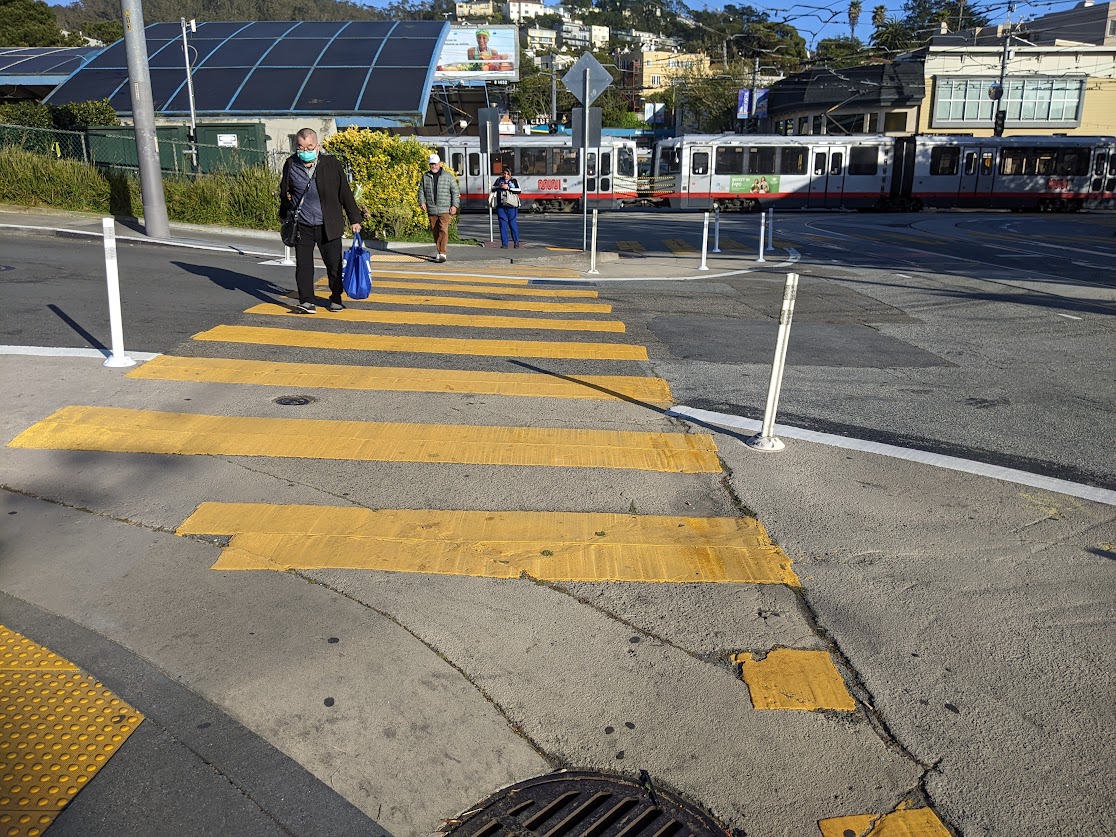Wait Continues as Proposed Final Orders Filed in Bike Injunction Case
3:13 PM PDT on July 7, 2010
 Could the long legal road be over soon in SF's bike injunction case? Photo: Myleen Holero, Orange Photography
Could the long legal road be over soon in SF's bike injunction case? Photo: Myleen Holero, Orange PhotographyThe attorneys on both sides in San Francisco's four-year-old bike injunction saga have filed their proposed orders with Judge Peter J. Busch, documents he requested at a recent hearing that will inform his final decision on whether to lift the frustrating legal hold on the Bike Plan.
The order proposed by the City Attorney's Office (PDF) urges Busch to find that the city fully complied with CEQA and to overrule the objections lodged by Rob Anderson's attorney, Mary Miles, who filed the original lawsuit. Deputy city attorneys Kate Stacy and Audrey Pearson address Miles' main contention that the city "abused its discretion" by not properly analyzing the Bike Plan's impacts on traffic, parking and transit, and alternatives to mitigate those impacts:
The Court finds that it is clear from the EIR and the record that the City attempted to mitigate all significant impacts, even if the only feasible mitigation could not reduce the impact to a level of insignificance. In addition, for many impacts where no feasible mitigation measures were identified, the impact was a cumulative one due to increases in background traffic congestion, irrespective of the inclusion of a near-term improvement.
It goes on to state that the city analyzed a reasonable range of alternatives and dismisses Miles' argument that CEQA required the city to mitigate all the impacts of a project:
In a project as complex as the Bicycle Plan, in a City as densely built as San Francisco, it is wholly speculative and unrealistic to assume that there are alternative streets for bicycle facilities that would have no impacts on the overall transportation system.
The order points out that "CEQA allows agencies to rely on economic, legal, social, technological, or other project benefits as a basis for a statement of overriding considerations," and that San Francisco has a Transit First policy, which encourages bicycle lanes and secure bicycle parking.
In her proposed order (PDF), Miles contends the Final Environmental Impact Report (FEIR) on what she calls the city's "far-reaching" Bike Plan is not "accurate, adequate or objective and does not comply with CEQA." Her order proposes that the city do a corrected EIR, and despite an admonishment from Busch at the last hearing that he will not "retain jurisdiction" over bike projects "in perpetuity," it goes so far as to ask that the city analyze future plans outside of the Bike Plan:
The corrected EIR must include current and future projects in its analysis of the Project’s cumulative impacts on traffic, transit, parking, air quality, and land use. Other projects include the Market and Octavia Plan, the Eastern Neighborhoods Plan, the Bayview/Hunter’s Point Redevelopment Plan, and the Parkmerced redevelopment project. These and other projects will eliminate thousands of parking spaces, cause congestion, and increase the burden on existing transit capacity. The corrected EIR will include data on the existing transit system capacity and a discussion of recent Muni service cuts to adequately assess the Project’s cumulative transit impacts.
The attorneys now have until July 13th (next Tuesday) to file responses and then Busch has 90 days to decide the case. It's hard to predict what the judge will do at this point, but he signaled at the last hearing that the case is winding down and seemed to look forward to putting it behind him.
Reading through these documents seems so exhausting after the last four years, but it was exciting to see the last part of the City Attorney's order, with language so many bicyclists and advocates have been pining for:
The Court finds that the City has complied with CEQA and the Court’s orders to conduct environmental review on the Bicycle Plan, including its policies and goals and individual improvement projects.
THEREFORE THE COURT HEREBY ORDERS:(1) The Petitioners’ Objections to the Respondent’s Return to the Peremptory Writ of Mandateare hereby OVERRULED.(2) The Peremptory Writ of Mandate issued on June 18, 2007 is hereby discharged in its entirety.(3) Petitioners’ Objections to Respondents’ Administrative Record are OVERRULED.(4) The Respondent’s Request for Judicial Notice is hereby GRANTED.(5) The Petitioners’ Request for Judicial Notice is hereby GRANTED.(6) Respondent to recover costs.
Stay in touch
Sign up for our free newsletter
More from Streetsblog San Francisco
SFMTA Starts West Portal Outreach
Agency presents plans to block traffic from crossing in front of the train station




